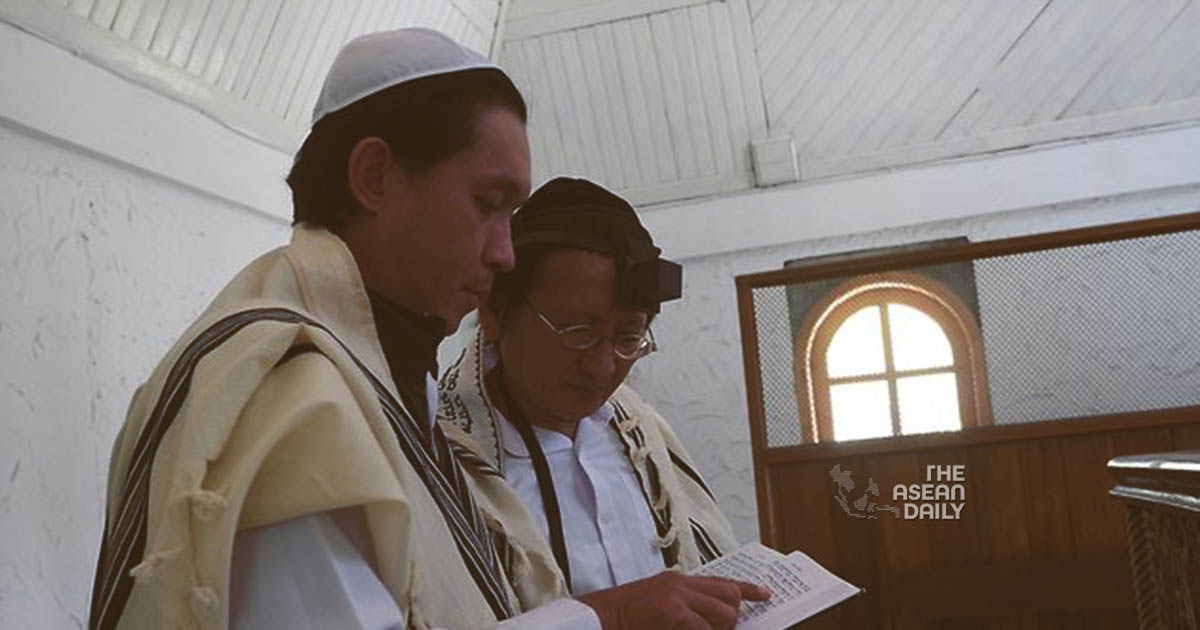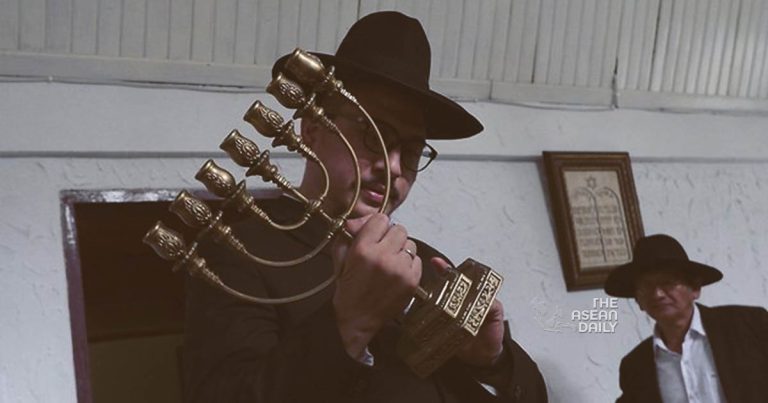19-8-2023 (JAKARTA) In the heart of Tondano, a town nestled in the serene landscape of North Sulawesi, the parking lot of an otherwise quiet compound is bustling with vehicles from areas several kilometers away. It’s the Sabbath, and inside the limestone-clad structures, three families have assembled. Men don brimless caps, while women elegantly drape themselves in a variety of headscarves. They gather to recite verses from the Torah and listen to sermons delivered by Rabbi Yaakov Baruch, the guardian of Indonesia’s lone synagogue, Shaar Hashamayim.
In a country predominantly Muslim, where anti-Jewish sentiment runs deep, Shaar Hashamayim is a sanctuary for the Jewish community, the only place where they can freely practice their faith. Indonesia’s oldest and only other synagogue, Beth Hashem in Surabaya, was dismantled in 2013 after successful lobbying by conservative Muslim groups, leaving Indonesia’s Jews to practice their religion covertly due to persistent harassment.
Even in regions like North Sulawesi, where the population is predominantly Christian and generally more tolerant, members of Shaar Hashamayim prefer to keep their faith concealed beyond the confines of the compound.

A worshipper, who wishes to be known only by his Hebrew name, Ezra ben Abraham, explains, “Only my immediate family and a few friends know that I am Jewish. The rest just assume that I’m still a Christian. Not everyone is welcoming towards Jews, including the Christians. Who knows what might happen if people find out I am Jewish.”
Rabbi Baruch, who has been open about his Jewish identity, also treads carefully when it comes to revealing too much about his background to protect his family from potential backlash.
However, he remains optimistic about the future, believing that conditions are gradually improving for Indonesia’s small Jewish community, which numbers around 200. His hope is that, one day, they can practice their faith openly in the country.
Uneasy Relations
Indonesia’s stance toward Israel and Jews has garnered international attention recently. Two governors, Ganjar Pranowo of Central Java and Wayan Koster of Bali, publicly stated that the Israeli football squad was unwelcome in their provinces during this year’s Under-20 World Cup. FIFA subsequently stripped Indonesia of its hosting status and moved the tournament to Argentina.
These statements stemmed from Indonesia’s long-standing opposition to the Israeli occupation of Palestinian territories, and any efforts to establish formal diplomatic relations between Indonesia and Israel have faced immediate public backlash. This opposition to Israel has evolved into widespread anti-Jewish sentiment in Indonesia.

A 2022 study by research firm Saiful Mujani revealed that 51 percent of Indonesians prefer not to have Jews as neighbors, and 61 percent do not want Jews as public officials. This anti-Jewish sentiment is particularly pronounced in Muslim-majority areas, irrespective of respondents’ education or economic backgrounds.
Indonesia officially recognizes only six religions and beliefs: Islam, Christianity, Catholicism, Hinduism, Buddhism, and Confucianism. This official recognition poses bureaucratic complications for some Jews, who may identify themselves as Christians to avoid such issues.
Even in North Sulawesi, a province known for its religious tolerance, discussing Jewish heritage remains somewhat taboo among families of mixed Indonesian and Dutch ancestries, which are prevalent in the region.
Finding Roots
Many Indonesian Jews either practice their faith in secret or renounce it entirely due to these challenges. Some only discover their Jewish heritage later in life. Rabbi Baruch himself didn’t learn about his Jewish roots until he was 15 years old when he found out that his maternal grandmother was born Jewish and came from a long line of Dutch Jews.
Despite the challenges, Rabbi Baruch remains an advocate for tolerance and understanding. He openly wears the Jewish skullcap, kippah, and other religious attributes in public, aiming to educate Indonesians about Judaism.
However, this openness comes at a cost. Rabbi Baruch recounts an incident when he and his wife were confronted by five men in a Jakarta shopping mall who demanded he remove his kippah, equating it with a symbol of murder.
Nonetheless, Rabbi Baruch sees progress. The days of provocative conspiracy theories and anti-Jewish sentiment proliferating in books have faded, largely replaced by easier access to accurate information online.
While challenges persist, Rabbi Baruch and others in Indonesia’s Jewish community are hopeful that the nation is slowly moving towards a more tolerant future. They believe that, as Indonesians become better informed about Judaism and separate political issues from the faith practiced by local Jews, conditions will improve, allowing the Jewish community to practice their religion more freely.




